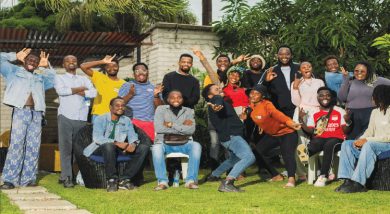Urban music taking over Malawi’s stage?
 Could empty venues at the Denmark-based Malawian Kidd Mkandawire’s homecoming shows in Blantyre, Mzuzu and Lilongwe cities signal that Afro-beat and traditional fusions are leaving the stage to urban music?
Could empty venues at the Denmark-based Malawian Kidd Mkandawire’s homecoming shows in Blantyre, Mzuzu and Lilongwe cities signal that Afro-beat and traditional fusions are leaving the stage to urban music?
Social scientists argue that culture is dynamic. Being a way of life, it changes from one generation to another. Like all aspects of arts, music is a part of culture in motion.
A decade ago, the likes of Charles Nsaku, Billy Kaunda, Thomas Chibade, Lawrence Mbenjere, Mlaka Maliro and Soldier Lucius Banda were the in-thing in Malawi. However, they are currently facing the pressure to adapt much the same way Lucius has or leave the stage to Pisky, Armstrong, Maskal, Young Kay, Sonye, and other urban voices that are going viral.
Largely comprising ragga, hip hop, R&B, pop and soul, urban music has evolved from being a “voice of the disenfranchised minorities to an expressive vibe of the trendy and fun-loving side of town.
Music scholar, Dr Robert Chanunkha, heads the Department of Fine and Performing arts at Chancellor College (Chanco) feels urban music appeals to a wider audience, particularly the youth, although some oldies, such as Lucius and Black Missionaries still command a huge following.
He says that the new breed of musicians do not only fuse internal and foreign influences but also harness new sounds and presentation strategies to suit the listeners’ tastes.
In this regard, he argues, the dying beat music can bounce back only if it wears a new face.
“I think there is little exploration and restructuring of traditional music. As long as musicians remain less creative with local touches, urban music, which is hybridised and comprises new sound tastes, will continue to take centre stage,†explains Chanunkha.
He affirms that yesteryears’ popular hits may be flops today because tastes vary with time and setting, saying: “Human beings are self-motivated dynamic creatures who perceive and accept changes in any way to suit their interests or environment.â€
“To bounce back, local music must be well thought of and composed or arranged with local values entrenched in it. It must also be available to large audiences.â€
But Andrew Faria, a lecturer in music at Chanco, believes there is hope for the oldies to reclaim their glory if they take the path Fikisa has taken.
The Akamwire hitmakers have exhumed kungwe dance from Yao dance culture into talk of the town.
“Fikisa group is doing real traditional music which is well arranged, and not alienated. On the other hand, music of old big names are characterised by some sameness and imitation. During their time, studio productions were also dominated by the touch of producers with less creativity from the artists themselves,†says Faria.
He calls on the old guard to come up with new ideas that will be appetising to the ears.
He says Lucius has outlived his ‘Balaka Reggae’ generation because he cleverly incorporates aspects which appeal to both the youth and the old.
Kidd of vimbuza fusions might not be one of the dinosaurs of Malawian music, but only time will tell if his kind can move with the hands of time.





